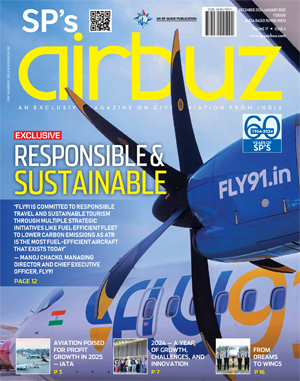Trends - Paradigm Shift

The single major factor responsible for the shift is the crude oil price rise. There has been similar hikes of comparable proportions in the past, but the current uptrend coincides with a downtrend in leading world economies, starting with that of the US.
Paradigm shift—a term Coined in the 1960s by Thomas Kuhn in his book The Structure of Scientific Revolutions to describe a change in basic assumptions within the ruling theory of science, in contrast to his idea of normal science—has so frequently been used, misused and abused outside the domain of science that one more interpretation would not matter one way or the other. So here goes. The present state of the aviation industry can be described as undergoing a paradigm shift. Simply put, it implies a major and radical change in a thought pattern. In this case, the thought pattern relates to how an expectant world looks at air travel and how the aviation industry is struggling to meet those expectations. The single major factor responsible for the shift is the unforeseen crude oil price rise during the last few months. True, there have been oil price rises of comparable proportions in the past too, but the current uptrend in oil prices happens to coincide in time with a downtrend in leading world economies, starting with that of the US. Oil prices pose a threat to the general expectation, like in the case of mobile telephony, that large economies of scale will make air travel inexpensive and place it within reach of the common man.
There are, of course, other factors, but oil prices are catalytic to the undermining effect of each of those factors. So how grave is the current disruptive state of the aviation industry and what are the corrective measures?
Global fuel crisis
So exhaustive has been the number crunching by the media that a statistical haze shrouds the facts related to the crisis. It would perhaps be more profitable to get a bird’s eye view of the industry’s throes. Worldwide, the industry shows a lack of control over its affairs akin to an epileptic suffering a particularly bad phase as more than two dozen airlines have gone bankrupt. In the US, Delta Airlines, the third largest, and Northwest Airlines, the fifth largest are in the process of entering into a marriage of convenience while the bigger players resort to desperate capacity cuts, charge passengers for traditionally free services and subject loyal employees to highly unpopular layoffs. Across the border, Air Canada has decided to cut 2,000 jobs.





